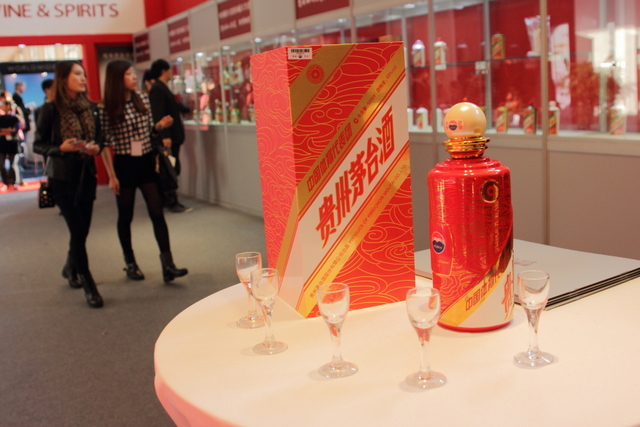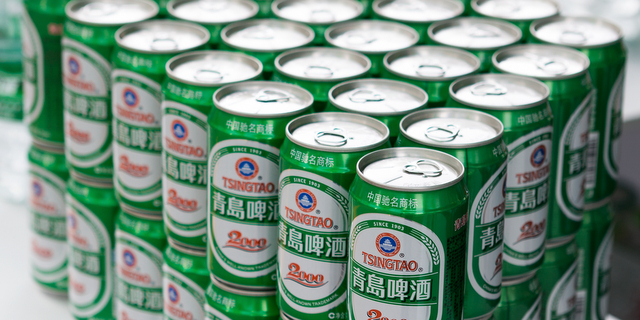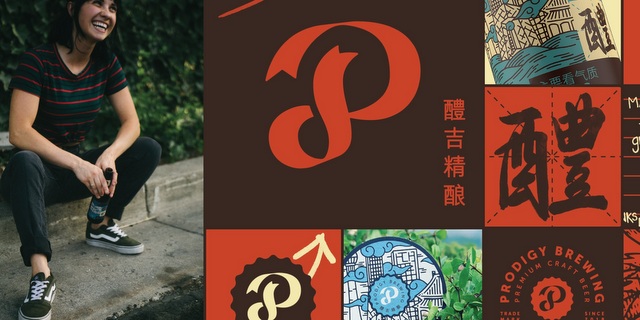One of the three famous distilled wines all over the world is #Moutai and is only produced in the Chinese Guizhou Maotai town. pic.twitter.com/r05n2JB4ET
— Moutai Global (@MoutaiGlobal) March 14, 2017
Baijiu? How do you pronounce that exactly? Most American’s don’t have a clue about China’s insanely popular liquor category, so let’s start off by learning how to say it (bye-joe). See, not so hard. The literal translation is “white alcohol,” and baijiu is a clear booze fermented traditionally using sorghum (it’s often called sorghum wine, if you wanna be sexy, which you do), but other grains can be employed (rice, wheat, barley, etc.). Baijiu is most often compared to vodka because of its clarity, mouth-feel and high ABV, but its taste is like nothing you’ve probably ever experienced — some have described it as intolerably bad alcohol or the taste of sweaty socks — while others have declared: “Sorry, tequila, mezcal, and pisco. I love you, but the most naturally complex (no flavors added) white spirit in the world is Moutai (also spelled Maotai), the national spirit of China.”
Most would agree it’s an acquired taste.
Regardless, baijiu (Moutai being its most popular brand) is also the most popular liquor in the world right now (bigger than whiskey), thanks to the continued patronage of 1.3 billion + thirsty Chinese drinkers and beyond. Hey, consider this: Wouldn’t it be cool if you were the first brewhouse or distillery to make baijiu for your consumer buddies? It might make for a bigger differentiator than say vodkas, rums and whiskey, though the process of distilling can be intensive (especially the aging process of baijiu). From Food & Wine:
Baijiu is made via various (sometimes secret) processes, but the most basic involves steaming sorghum and mixing it with water and qu (bricks or balls of damp grains that are left in a warm place for about a month until they grow yeasts, fungi and other microorganisms). The qu is the key to kicking off fermentation, which occurs sometimes in ancient mud pits and sometimes in jars buried underground. Then, the liquid is strained from the mash and distilled using giant steamers. After that, the spirit is aged in large earthenware vessels — which remove impurities rather than add flavors and color like wooden barrels do — for anywhere from one year to 30 or more. After being tempered with a little water, the finished product comes in somewhere between 50 and 60 percent alcohol.

So, it’s expensive to do, compared to say brewing, but it’s unique, and we know distilling is hot right now. Now would probably be the time to get into baijiu (if there was any time at all in America for this weirdness). Brand Finance, which is the world’s leading brand valuation and strategy “consultancy,” announced the world’s 50 most valuable spirits brands last week. They also noted: “2017 is the year of baijiu brands.” From the press release:
For the first time, the fiery Chinese drink now accounts for a greater share of brand value than any other spirit type. In 2016, Baijiu accounted for 23% of the total brand value of the Brand Finance Drinks 50 behind Whiskey/Whisky on 37%. However, this year, the tables have turned. Whiskey/Whisky’s share has dropped to 28% while Baijiu’s has surged to 37.5%. The world’s top Baiju brands have a combined value of over US$22 billion.
Moutai [the leading baijiu brand] maintains its position as the world’s most valuable spirits brand with an outstanding 60% increase in brand value to US$11.5 million. 50% of all sales in 2012 were to government entities so Moutai’s brand value and future success appeared to have been seriously threatened by a government crackdown on excess and gift-giving that might be construed as bribery. However, the gap has been filled by individual consumers and private enterprise. Demand is now stronger than ever, with the price of a bottle recently rising to 1,200 yuan.
Moutai is even tentatively expanding outside China, celebrating the one year anniversary of Moutai Day in San Francisco in 2016 as well as launching in Germany.
Baijiu is already in America, and major import brands aren’t cheap (though many economy brands exist, for like $25), but bottles of Moutai (which is a luxury brand) can range from $100 to $300. Yet, perhaps that price point also makes for an interesting opportunity. You could certainly justify selling a bottle for well over $100. Plus, there are a zillion different flavors you can experiment with. Learn more about the processes and brands right over here. Then go grab a bottle and see if you can swallow it. That might be the biggest test of all.





Leave a Reply
You must be logged in to post a comment.